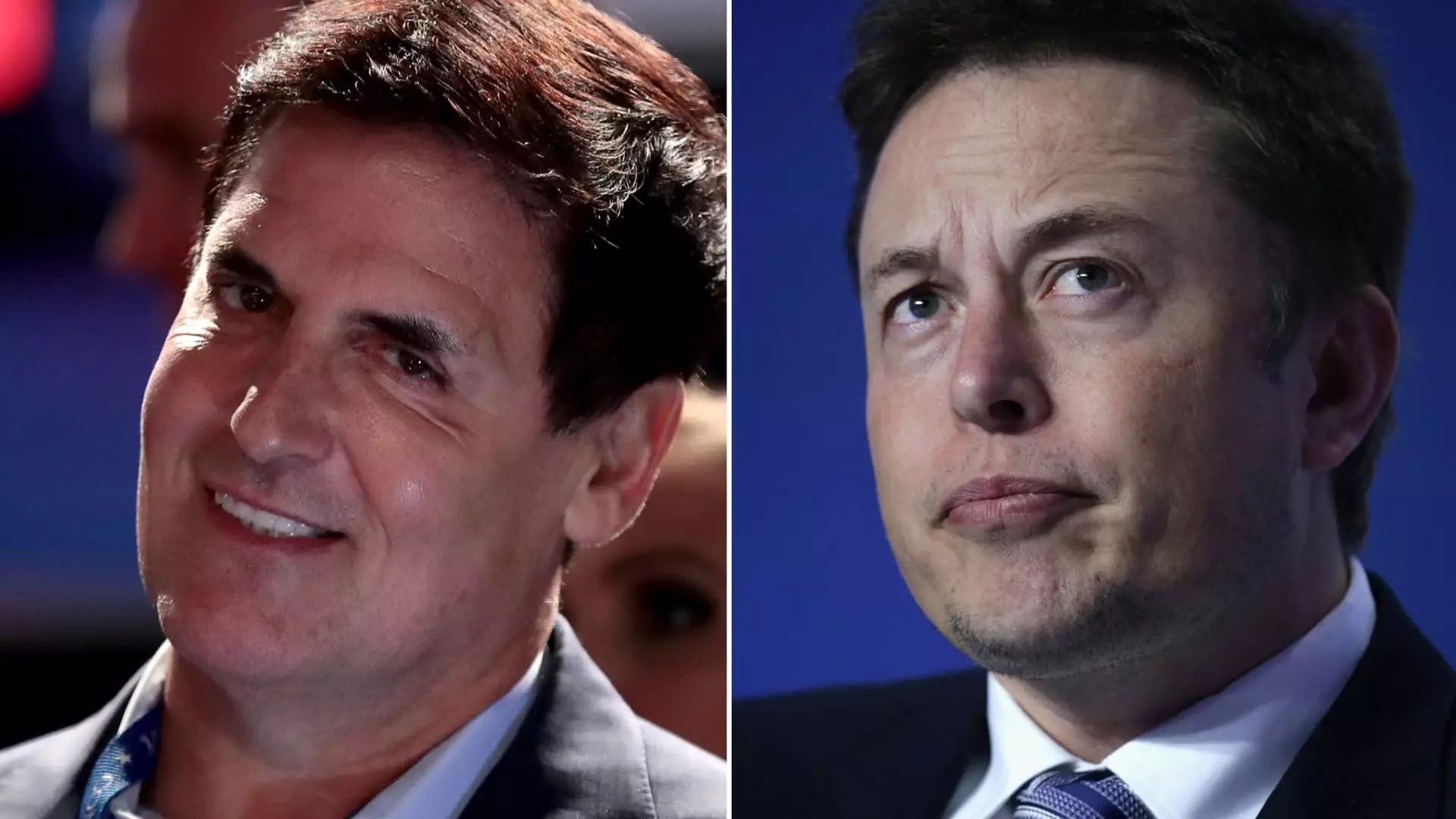In the high-stakes world where business and politics intersect, the relationships that billionaires foster with political figures often reflect a broader strategy of mutual support and benefit. Recently, a warning was issued by billionaire investor Mark Cuban to Tesla’s CEO Elon Musk regarding his political affiliation with former President Donald Trump. Cuban articulated a cautionary note on X (formerly Twitter), suggesting that Musk’s loyalty to Trump might be misguided. Specifically, Cuban indicated that Trump’s loyalty is predictably self-serving, hinting that any favors or support might not be reciprocated when the time comes. This kind of political advice is not just personal but speaks to the deep-rooted dynamics that govern the relationships between wealth and power, where many before have found themselves at a crossroads of disappointment.
Cuban’s apprehensions resonate particularly as Musk shows signs of shifting allegiances, having previously been vocally critical of Trump in 2022. This marked change raises questions about the motivations behind these alliances and the realpolitik involved. What kind of return on investment can billionaires expect when aligning themselves with political figures, especially those known for their volatile loyalty?
Musk’s recent support for Trump is both perplexing and strategic, reflecting a desire for greater influence in the political realm. His assertion that Trump’s absence from the presidency could signal the end of elections as we know them implies a high-stakes view of American democracy that ties political outcomes to economic prospects. Musk, always at the forefront of public discourse, has leveraged his platform to amplify various conspiracy theories surrounding immigration and electoral strategy by the Democrats, linking them ominously to potential electoral outcomes. Here, Musk’s behavior encapsulates a dynamic where business leaders utilize their platforms to sway public opinion, further complicating the relationship between wealth and governance.
However, the question arises whether this wave of support is genuine or a calculated engagement in political pandering. The stark transition from Musk’s previous stance on Trump to the current endorsement could be perceived as hypocritical, particularly given the magnitude of disparaging remarks exchanged in the past. This transformation might reflect a utilitarian calculus wherein Musk perceives an alignment with Trump to serve his interests better in the face of an upcoming election.
In contrast to Musk’s bold speculation about Trump’s potential second term and what that could entail for governance, Cuban has taken a decidedly different path, aligning himself with Vice President Kamala Harris. His public endorsement of Harris as a champion for economic progress and better for the business environment signifies a strategic pivot toward fostering a favorable regulatory atmosphere for his ventures. Cuban’s active engagement in supporting Harris’s economic agenda juxtaposes Musk’s more controversial and conspiratorial approach.
Both men are sculpting their paths with an eye toward political influence, yet their methodologies diverge significantly. While Musk appears to engage in an escalation of temperature through provocative rhetoric, Cuban seems to be focused on establishing a more conventional support system that seeks tangible benefits through political channels rather than high-risk political gambits. The complexities of their objectives reflect the polarizing nature of political affiliations for individuals in the highest income brackets.
Ultimately, the discussions initiated by Cuban also serve as a larger metaphor for the often-treacherous landscape of political allegiance in America, particularly for those who possess significant wealth. The expectation that loyalty will equate to reciprocity is fraught with challenges, especially in a political environment as contentious as the current one. Cuban’s warning underscores a common theme wherein loyalty is interwoven with the expectation of political favors, raising the stakes for those who align themselves with influential figures, like Trump.
As both Cuban and Musk navigate their respective political landscapes, it becomes increasingly clear that the interplay between business interests and political affiliations is not just a matter of personal ideology; it’s a calculated game of risks and rewards. In a world where influence can shift in an instant, the legacy and lessons learned from these interactions will likely inform future decisions made by billionaires seeking to influence American politics. As such, we must scrutinize the motives and behaviors of such figures, acknowledging the symbiotic yet precarious nature of their alliances in the landscape of American democracy.


Leave a Reply